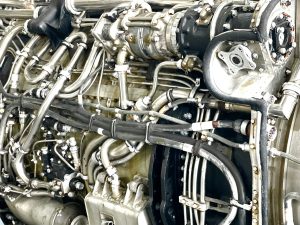Evaluating Pros and Cons of Hybrid Powertrains Today
In today’s world, where the demand for clean and efficient energy is ever-increasing, hybrid powertrains have gained much popularity in the automotive industry. The concept of combining gasoline and electric power has been around for quite some time, but it is only in recent years that it has been adopted on a larger scale. With advances in technology, hybrid powertrains have become more viable and accessible to the average consumer. However, like any new technology, it comes with its own set of advantages and disadvantages. In this article, we will dive into the pros and cons of hybrid powertrains and evaluate whether they are a worthwhile investment in today’s market.
What are Hybrid Powertrains?
A hybrid powertrain is a combination of a traditional gasoline engine and an electric motor, which work together to power a vehicle. These powertrains come in various forms, but the most common type is the parallel hybrid, where both the gasoline engine and electric motor can individually or together power the vehicle.
The electric motor is usually used to assist the gasoline engine when accelerating or driving at low speeds, and the battery is charged through regenerative braking when the car is slowing down. This combination of two power sources results in improved fuel efficiency and reduced emissions, making hybrid powertrains a more environmentally-friendly option compared to traditional gasoline-powered vehicles.
Pros of Hybrid Powertrains
Improved fuel efficiency is the main advantage of hybrid powertrains. By using the electric motor to assist the gasoline engine, hybrids can achieve better gas mileage and reduce the reliance on the traditional engine. This results in less fuel consumption and lower emissions, making hybrids a more environmentally-friendly option.
In addition to better fuel efficiency, hybrid powertrains offer a smoother and quieter driving experience. The electric motor provides instant torque, which results in quicker acceleration and a smoother ride. This also eliminates the need for the vehicle to shift gears, making the ride even more seamless.
Another advantage of hybrid powertrains is government incentives and tax breaks. As governments push for cleaner and more efficient vehicles, many countries offer tax breaks and other incentives for purchasing hybrid vehicles. This not only makes them a more affordable option, but it also promotes the use of cleaner energy sources.
Cons of Hybrid Powertrains
Despite their many benefits, hybrid powertrains also come with some drawbacks that may make them less appealing to some consumers. The biggest disadvantage is the higher upfront cost of purchasing a hybrid vehicle. The technology used in hybrids can add thousands of dollars to the price of a vehicle, making it a less budget-friendly option for some.
Another potential issue is the limited driving range of hybrid vehicles. While the electric motor can assist the gasoline engine in improving fuel efficiency, the battery can only power the vehicle for a certain distance before needing to recharge. This may be a problem for those who frequently travel long distances or live in areas without enough charging infrastructure.
In addition, maintenance costs for hybrid powertrains may be higher compared to traditional gasoline engines. The added complexity of the technology used may require specialized skills and equipment, resulting in higher repair costs. However, this may vary depending on the make and model of the vehicle.
Are Hybrid Powertrains Worth It?
When it comes to evaluating the pros and cons of hybrid powertrains, it ultimately comes down to personal preference and individual needs. If you are someone who is conscious about the environment and wants to save on fuel costs, then a hybrid may be a great option for you. However, if you have a tight budget and do not mind a less fuel-efficient vehicle, then a traditional gasoline-powered car may be a better choice.
Furthermore, with the constant advancements in technology and the increasing demand for cleaner energy, it is likely that the drawbacks of hybrid powertrains will be addressed in future models, making them an even more appealing option. In the end, the decision to invest in a hybrid vehicle should be based on your specific requirements and priorities.
Conclusion
Hybrid powertrains have come a long way since their inception and have become a viable option for environmentally-conscious consumers. With improved fuel efficiency, a smoother driving experience, and potential government incentives, hybrids are certainly a step in the right direction towards a greener future. However, the higher upfront cost and limited driving range may be off-putting for some. Ultimately, it is important to weigh the pros and cons and assess your own needs before deciding if a hybrid powertrain is right for you.










